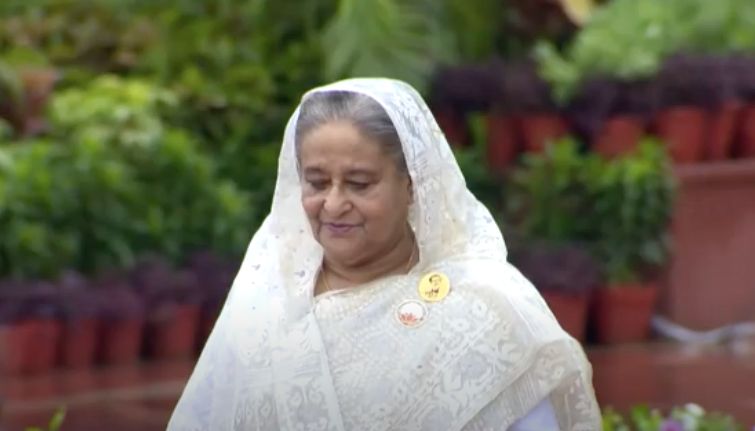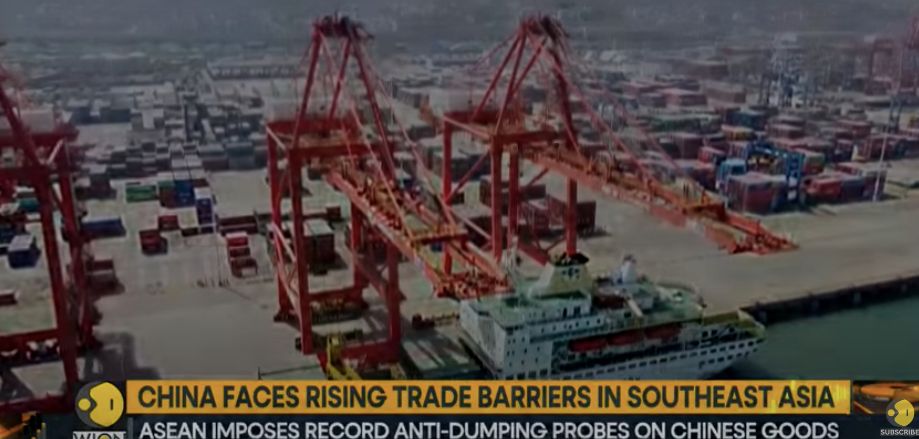
India-Bangladesh relations have become bumpy. The new Bangladesh government is trying to extradite former prime minister Sheikh Hasina, who has taken shelter in India after being ousted from power in August. Now, further straining relations between the two countries, India’s Adani Group is pressing Bangladesh for nearly $500 million in overdue payments. Bangladesh owes the money for power supply from an Adani power plant in India.
The move to extradite the 76-year-old Sheikh Hasina and the Bangladesh government owing money to Adani are two separate issues. But both Delhi and Dhaka are in a tight spot.
Delhi lost a valuable ally when Hasina was ousted after 15 years in power and forced to flee in a military helicopter to an Indian airbase on August 5. The new interim government in Dhaka is backed by elements that are not as close to India as Sheikh Hasina.
Meanwhile, cash-strapped Dhaka is scrambling for billions of dollars in aid.
The financial crunch is not about to be compounded by a power crisis – yet.
Adani Power
Adani Power has told the Financial Times that it will continue to supply power to Bangladesh from its 1,600 MW power plant at Godda in Jharkhand, India. The power supply cannot be diverted to India as it is not connected to the Indian grid.
However, the power supply deal signed during Indian Prime Minister Narendra Modi’s visit to Dhaka in 2015 was repeatedly criticized by activists, who claimed it was not economically viable for Bangladesh.
The interim government’s leader, Muhammad Yunus’ top energy adviser, Muhammad Fouzul Kabir Khan, told the Financial Times that Bangladesh was late in paying $492 million to Adani, to whom it owes as much as $800 million in total.
He said the interim government had approached lenders, including the World Bank, for billions of dollars in loans. “Since joining [the government], we’ve been firefighting,” Khan said.
War crimes tribunal
Meanwhile, Bangladesh’s war crimes tribunal is seeking the extradition of Sheikh Hasina, accusing her of carrying out “massacres”, reports AFP.
More than 600 people were killed in weeks of unrest before Hasina’s ouster, according to a preliminary United Nations report.
“As the main perpetrator has fled the country, we will start the legal procedure to bring her back,” Mohammad Tajul Islam, chief prosecutor of Bangladesh’s International Crimes Tribunal (ICT), told reporters.
Hasina set up the tribunal in 2010 to investigate atrocities during the 1971 independence war from Pakistan.
Bangladesh has a criminal extradition treaty with India, signed while Hasina was in power.
However, the treaty includes a clause which says extradition might be refused if the offence is of a “political character”.
Sheikh Hasina was expected to stay in India for a short period, but her attempts to seek asylum in the UK, the US and the UAE have not been successful so far, says the BBC.
Her continued presence in India vexes relations with Bangladesh.
India-Bangladesh ties
India shares a 4,000 km border with Bangladesh and, therefore, needs good relations with Dhaka for border security.
Sheikh Hasina settled border disputes with India, and trade and connectivity between the two countries flourished.
Delhi has reached out to the interim government in Dhaka to maintain good relations. Prime Minister Modi held a telephone conversation with the interim leader, Muhammad Yunus.
However, Delhi has had strained relations in the past with Sheikh Hasina’s adversaries, the Bangladesh Nationalist Party (BNP), led by Khaleda Zia, who are now back in strength.
During the previous BNP-led coalition government from 2001 to 2006, Delhi accused Dhaka of harbouring anti-India militants.
At the time, Hindu leaders in Bangladesh said there were a series of attacks against them – including murder, looting and rape.
The BNP denies giving shelter to anti-Indian militants and carrying out attacks on minority Hindus.
But there is no denying Delhi had better relations with Dhaka when Sheikh Hasina was in power.






